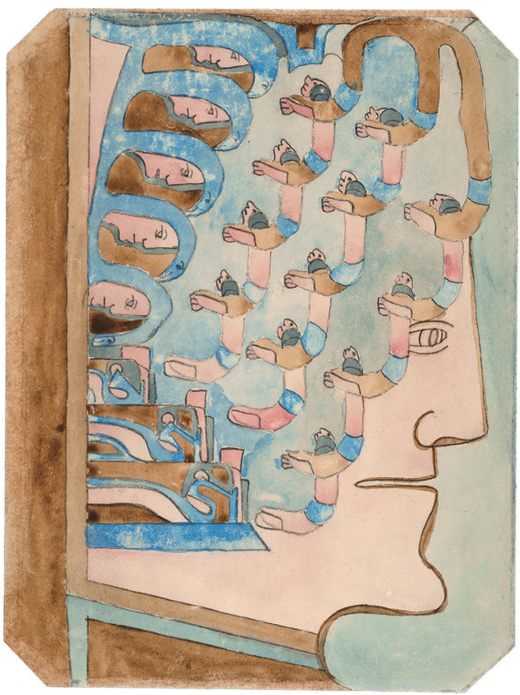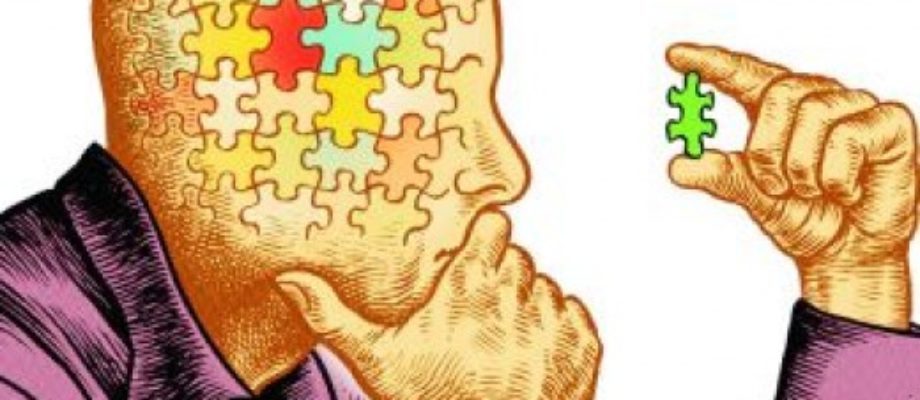Can we treat psychosis by listening to the voices in our heads?
© Prinzhorn Collection, University Hospital Heidelberg, Inv. No. 568Wormholes, 1919, by August Klett, who was a patient at the psychiatric clinic at the University of Heidelberg, in Germany. Under the alias August Klotz, he was one of the ten “schizophrenic masters” whose work was collected in the book Artistry of the Mentally Ill (1922). The book was compiled by Hans Prinzhorn, a psychiatrist and art historian, who recorded Klett as hearing voices that were obscene, accusatory, and threatening.
Sarah was four years old when her spirit guide first appeared. One day, she woke up from a nap and saw him there beside her bed. He was short, with longish curly hair, like a cherub made of light. She couldn't see his feet. They played a board game-she remembers pushing the pieces around-and then he melted away.
After that, he came and went like any child's imaginary friend. Sarah often sensed his presence when strange things happened-when forces of light and darkness took shape in the air around her or when photographs rippled as though shimmering in the heat. Sometimes Sarah had thoughts in her head that she knew were not her own. She would say things that upset her parents. "Cut it out," her mother would warn. "This is what they put people in psychiatric hospitals for."
Sarah was the youngest of four siblings. Her father was a sales manager for a pharmaceutical company, and he traveled a lot while his wife stayed home with the kids. Sarah's mother was a strict disciplinarian. She was determined to straighten out her children, whom she felt had been spoiled by the housekeeper they'd left behind when they moved to California. Sarah remembers one day, not long after she played the game with her spirit guide, when she and some neighborhood kids tried to set up a barbecue in the back yard. Her babysitter found them in the basement, burning strips of paper in the pilot light of the furnace. When Sarah's mother came home, she held the girl's fingers in the flame of a cigarette lighter as punishment.
As Sarah grew up, she started to dislike the strange experiences she had, and she decided that they could not be real. Then she went to college and became a nurse, and she began to see the souls of dead patients leave their bodies. Sometimes what emerged was a transparent version of the corpse. Other times she saw what the patients must have looked like when they were young. A few would stand next to the bed. More floated up to the ceiling and looked down. They were usually startled to see their own bodies and horrified to witness the pummeling they took from doctors trying to keep them alive.




Comment: Silence is much more important to our brains than we think